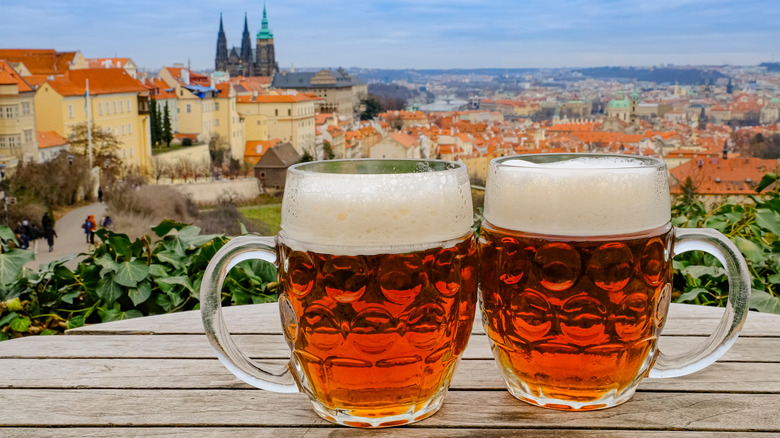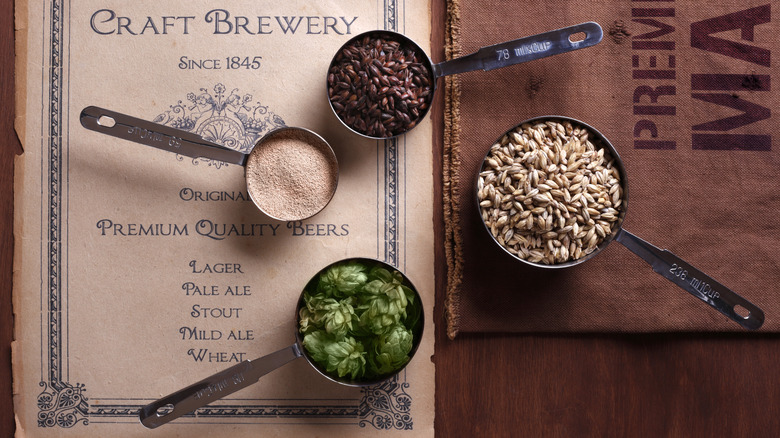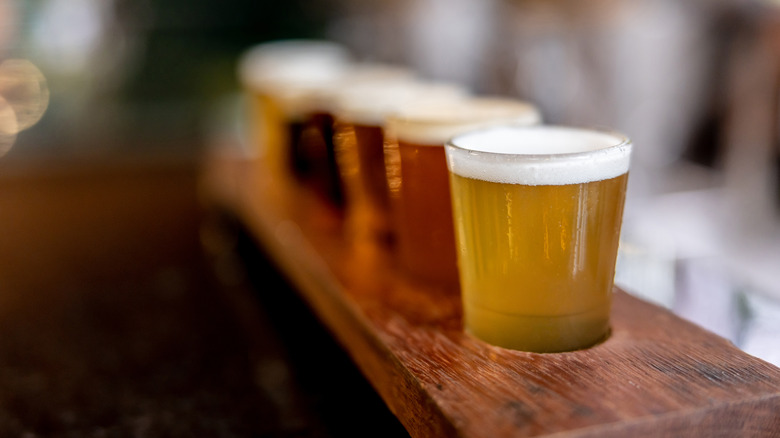The Creation Of Beer Was Probably Just A Big (But Great) Mistake
Perhaps you've heard people say that beer has been around for just as long as human civilization. Is this hyperbole? A little, yes, but not as much as you might expect. We know for a fact that the ancient Mesopotamians were drinking beer by 3000 BCE because they left behind plenty of cuneiform tablets talking about beer, and even some preserved beer residue. But we've also found evidence that the beverage is much older, and that, like many great discoveries, beer came about by accident.
The exact origin of beer can be a little blurry, as if you're looking at the ancient world through beer goggles — we have no way to identify the very first beer ever brewed. But the most common theory among historians is that it came about during a bread-making procedure gone wrong. The grain mixture was left outside, possibly during a rainstorm, and its maker came back to find it fermenting (likely due to being exposed to wild yeasts or bacteria). The results were soupy, but at some point, humans drank some, and felt a buzz. To invoke an old cliché, the rest is history.
The accidental brewery
This first brewing was likely done by an ancient people called the Sumerians, who lived in southern Mesopotamia and are credited with lots of major inventions like measuring time in hours and days, inventing schools, and writing influential stories like the Epic of Gilgamesh. Beer is actually mentioned in Gilgamesh, which was written around 2000 BCE: When the hero Gilgamesh attempts to civilize the wild Enkidu, he does so by giving him bread and beer.
After that first batch of intoxicating grains, Mesopotamians drank beer regularly. The original purpose of beer was for ceremonies, but it shows up constantly in ancient artwork, poetry, and songs from the region. Unlike modern beer, it was much thicker and not flavored with hops. Instead, they added spices and fruits for flavor.
The Sumerians were drinking beer for at least a thousand years before the earliest record of Gilgamesh, and possibly earlier. While this "first brew" is thought to have taken place around 4000 BCE, agriculture in that region dates back to about 10,000 BCE, and some historians believe human settlements would seek out fermented foods as soon as their basic needs were met.
A long, malted history
When we say "beer" here, we're referring to a very primitive barley-based beer. When this first batch of beer was brewed, it certainly wasn't the first time a human had gotten drunk: An early form of honey-based mead dates back to ancient Jiahu, China in 7000 BCE. But beer is made primarily from grains like barley, alongside hops, yeast, and water.
And the Sumerians weren't the only people with a taste for beer: It shows up a lot in surviving records from the Babylonian Empire (which was also in Mesopotamia), as well as in ancient Egypt, where Cleopatra once infamously ordered a beer tax during an epidemic of public drunkenness.
Beer as we know it today — flavored with hops — came about in Europe during the Middle Ages. The Germans in particular invented lots of modern beer styles including the lager, which dates back to 1400s Bavaria. Funnily enough, the invention of lager was also a mistake. At the time, most beers were top-fermenting (we call them ales), while Bavarian monks accidentally made their brew too cold and created bottom-fermenting beer, now called lagers. And we have popular craft beers as a result.


